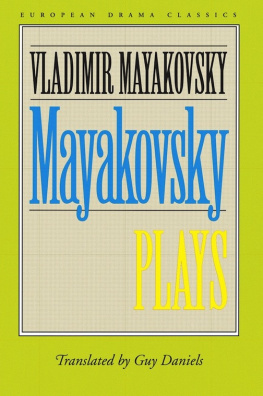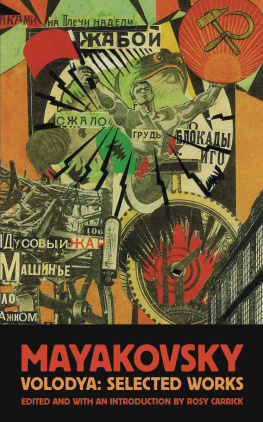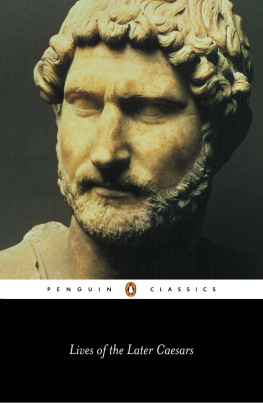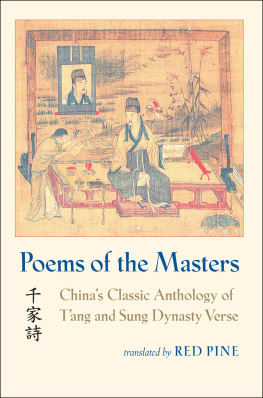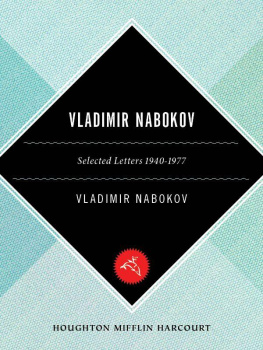Vladimir Mayakovsky - Plays
Here you can read online Vladimir Mayakovsky - Plays full text of the book (entire story) in english for free. Download pdf and epub, get meaning, cover and reviews about this ebook. year: 2017, publisher: Northwestern University Press, genre: Detective and thriller. Description of the work, (preface) as well as reviews are available. Best literature library LitArk.com created for fans of good reading and offers a wide selection of genres:
Romance novel
Science fiction
Adventure
Detective
Science
History
Home and family
Prose
Art
Politics
Computer
Non-fiction
Religion
Business
Children
Humor
Choose a favorite category and find really read worthwhile books. Enjoy immersion in the world of imagination, feel the emotions of the characters or learn something new for yourself, make an fascinating discovery.
- Book:Plays
- Author:
- Publisher:Northwestern University Press
- Genre:
- Year:2017
- Rating:5 / 5
- Favourites:Add to favourites
- Your mark:
- 100
- 1
- 2
- 3
- 4
- 5
Plays: summary, description and annotation
We offer to read an annotation, description, summary or preface (depends on what the author of the book "Plays" wrote himself). If you haven't found the necessary information about the book — write in the comments, we will try to find it.
Plays — read online for free the complete book (whole text) full work
Below is the text of the book, divided by pages. System saving the place of the last page read, allows you to conveniently read the book "Plays" online for free, without having to search again every time where you left off. Put a bookmark, and you can go to the page where you finished reading at any time.
Font size:
Interval:
Bookmark:
Mayakovsky PLAYS Mayakovsky PLAYS Vladimir Mayakovsky Translated by Guy Daniels Introduction by Robert Payne  Northwestern University Press
Northwestern University Press
Evanston, Illinois Northwestern University Press www.nupress.northwestern.edu Originally published in English under the title The Complete Plays of Vladimir Mayakovsky. Copyright 1968 by Washington Square Press, Inc. Northwestern University Press edition published 1995 by arrangement with Josiane Rodriguez-Daniels. All rights reserved. Printed in the United States of America 10 9 8 7 6 5 ISBN-13: 978-0-8101-1339-8 ISBN-10: 0-8101-1339-2 ISBN (electronic): 978-0-8101-3308-2 Library of Congress Cataloging-in-Publication Data Mayakovsky, Vladimir, 18931930. [Plays.
English] Mayakovskyplays / Vladimir Mayakovsky ; translated by Guy Daniels ; introduction by Robert Payne. p. cm. (European drama classics) Originally published: The complete plays of Vladimir Mayakovsky. New York : Washington Square Press, 1968. Includes bibliographical references.
Contents: Vladimir Mayakovsky, a tragedyMystery-BouffeThe bedbugThe bathhouse. ISBN 0-8101-1339-2 (paper : alk. paper) 1. Mayakovsky, Vladimir, 18931930Translations into English. I. II. II.
Payne, Robert, 1911. III. Mayakovsky, Vladimir, 18931930. Complete plays of Vladimir Mayakovsky. IV. V. Series. Series.
PG3476.M3A24 1994 891.72'42dc20 95-23932
CIP  The paper used in this publication meets the minimum requirements of the American National Standard for Information SciencesPermanence of Paper for Printed Library Materials, ANSI Z39.48-1992. Contents TRANSLATORS DEDICATION TO
The paper used in this publication meets the minimum requirements of the American National Standard for Information SciencesPermanence of Paper for Printed Library Materials, ANSI Z39.48-1992. Contents TRANSLATORS DEDICATION TO
FRANCES KEENE,
donna di piagente coreMayakovsky PLAYS VLADIMIR MAYAKOVSKYWho is he?Who is that free spirit?Who is hethat nameless one?Who is hewith no country of his own?Why did he come?What prophecies did he utter?Mystery-Bouffe I Long before he died, on April 14, 1930, the figure of Mayakovsky had assumed legendary proportions. He seemed not to belong to the real world, but to another world where everything was larger, louder, brighter, more fiercely energetic, and more beautiful. It was a world of elemental forces shimmering with the colors of the rainbow, where the sun never set and no winter fell. In that world he was perpetually striding forward, his head tossed back, his yellow shirt open at the neck, his voice shouting above the thunder. He was a giant in seven-league boots, and like the ancient folk hero Ilya Muromets, he was so careless of his power that he was scarcely aware of the enemies he was treading underfoot.
Out of that ancient legendary world where he was at home, Mayakovsky sometimes gave the impression of hurtling violently like a rocket or a celestial steam engine into the everyday world, scattering everything before him. Not long ago a Chinese poet described Peking man emerging out of the red earth to terrify the present inhabitants of China. So with Mayakovsky. An elemental, primitive force surged through him, and finally shattered him. He was at home in the tempests and the snowstorms, and he was never comfortable unless the lightning was playing about him. Such men do not appear frequently, and they have no imitators.
In the history of Russian poetry Mayakovsky stands alone, not only because he had no poetical ancestors and created an entirely new form of poetry, but also because he emerged at a time when Russia was herself primitive, chaotic, and convulsive, pouring out blood and energy on a scale undreamed of until this time. The whirlwind of Mayakovsky met the whirlwind of the Revolution head on, and if they sometimes seemed to be the same whirlwind, if they often appeared to be moving in the same direction, they were nevertheless separate and distinct. Sometimes he drew the Revolution round him like a cloak, but he could just as well walk without it. Everything about him was larger than life: his voice, his manners, his arrogance, his appetites, his gifts. He wrote poetry as though he were hammering rivets into sheet iron, and he conducted his life as though he had a thousand lives to spare. When he painted a portrait, he would search for the largest canvas he could lay his hands on, and hurl on it the brightest and purest colors from his palette, and in the same way, when he wrote poetry, he would search for the brightest and largest words, and hurl them down on the largest sheet of paper available, always taking care to give the words space to breathe in.
There was nothing niggardly about him; he poured out poetry in a torrential and undeviating flow, and it is possible that he never knew whether he was writing at the top of his genius or at the lowest pitch of his talent. That he was born and died seemed the least important thing about him; it is not the birth or the death of a cyclone that one remembers. One remembers the destructive path and the raging of the heavens. When he first appeared on the literary scene, he was already fully formed, possessing an authentic voice which was to remain largely unchanged for a quarter of a century. He called himself a futurist, but that was merely his way of saying that he came from the remote past. He was tall, heavily built, with a large mouth, brilliant blue-gray eyes, a heavy jaw, the look of a peasant who had wandered out of Bohemia.
His father was a forester in Georgia, who died when Mayakovsky was young, leaving the family destitute; he was about thirteen when he first became a Bolshevik, serving as a courier and gunrunner, and he was fifteen when he had his first taste of prison. In 1913, when he was twenty, he wrote, produced, and acted in his first dramatic work. Characteristically he called it Vladimir Mayakovsky, A Tragedy. He made no attempt to disguise the theme of the play, which was the celebration of his own poetic genius and apotheosis as the divine poet crowned with laurel leaves, ascending to heaven while intoning his own name. The naked exuberance, the ferocity of the self-adulation, and the brilliance of the imagery seemed to indicate that he had reached the stage of egotistic romanticism beyond which it was impossible to go. In time he was to show that this was the merest beginning.
He later extended the range of his exuberance and self-admiration until they encompassed vast unexplored regions of his ego, and he continued to display an extraordinary power to invent images which sent the mind reeling. Vladimir Mayakovsky, A Tragedy was a tragedy only in the sense that the Divina Commedia was a comedy: there was simply no available poetic description for it. Most of the characters, even those who offer tribute to Mayakovsky, were Mayakovsky. The Man Without a Head, the Man with One Ear, the Man with One Eye and One Leg, the Man with Two Kisses, the Man with a Long Drawn-out Face, the Conventional Young Man, and the Old Man with Scrawny Black Cats were all Mayakovsky in his various manifestations, and there is some question whether The Enormous Woman, fifteen to twenty feet tall, was not a projection of the Mayakovsky who in his final appearance wishes he had breasts large enough to feed everyone. Even the Woman with a Tiny Tear, the Woman with a Tear, and the Woman with a Great Big Tear may be regarded as projections of Mayakovskys devouring self-pity. Things must be destroyed, says the Old Man with Scrawny Black Cats, and since things includes people, who are no more than bells on the duncecap of God, the poet seems inclined to view the prospect of universal destruction with jaunty indifference.
His true habitation is not the world but abstract Time, which buries all things in its capacious belly. As for love, this is just one more of the encumbrances which must be destroyed. If you had loved as I have loved, you would murder love, says the Man with a Long Drawn-out Face, offering as an alternative the promise of celestial debauchery with the shaggy, sweat-dripping sky and the milky-innocent stars. It is an unlikely promise, and Mayakovsky does not pursue it farther, although at intervals he will introduce the vast abstractions of Sky, Space, Time, Universes. Time is his special bugbear, for he knows that Time alone can destroy him; and in a strange and wonderful image the Man with One Eye and One Leg describes the ultimate terror: ... the snouts of the years that came crawling out; on the foreheads of cities anger swelled up into rivers of thousand-mile-long-veins.
Next pageFont size:
Interval:
Bookmark:
Similar books «Plays»
Look at similar books to Plays. We have selected literature similar in name and meaning in the hope of providing readers with more options to find new, interesting, not yet read works.
Discussion, reviews of the book Plays and just readers' own opinions. Leave your comments, write what you think about the work, its meaning or the main characters. Specify what exactly you liked and what you didn't like, and why you think so.

